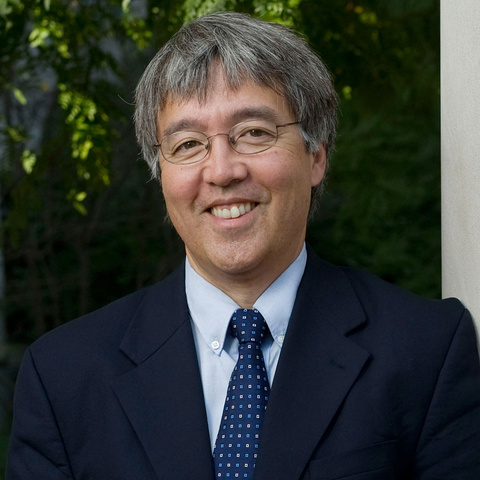Kurose Named Fellow of the American Association for the Advancement of Science

Jim Kurose, distinguished university professor at the Manning College of Information and Computer Sciences and associate chancellor of partnership and innovation, is being recognized this year as a fellow of the American Association for the Advancement of Science (AAAS). AAAS is the world’s largest multidisciplinary scientific society and a leading publisher of cutting-edge research through its Science family of journals.
Kurose received the recognition for his “pathbreaking contributions to the design and analysis of network protocols and extensive and visionary technical leadership and service to the computing research community.” He came to UMass in 1984 and has been at the forefront of the internet revolution since its earliest days. With nearly 300 refereed conference and journal publications, he is also the author of Computer Networking: A Top Down Approach, a foundational text in computer science programs throughout the world. Kurose’s particular area of expertise involves the overall architecture (structure) for computer networks, multimedia communication, network performance measurement, and network protocols (the rules governing how the various pieces of a network communicate with each other). “I’ve been working on networking for quite a while,” says Kurose, “since the 1980’s and when I first arrived at UMass—which was before the Internet as we know it existed.”
Along the way, Kurose has been a visiting scientist at IBM Research, INRIA (the French national computer science research institute), Institut EURECOM, the University of Paris, the Laboratory for Information, Network and Communication Sciences and Technicolor Research Labs. From 2015 – 2019, Kurose served as assistant director at the US National Science Foundation, where he led the Directorate of Computer and Information Science and Engineering (CISE). With an annual budget of nearly one billion dollars, CISE's mission is to uphold the nation's leadership in scientific discovery and engineering innovation through its support of fundamental research in computer and information science and engineering and transformative advances in cyberinfrastructure. During his tenure as assistant director, Kurose was able to help launch a number of new programs—including in artificial intelligence, advanced wireless networks, data science, the future of work at the human technology frontier, and Computer Science for All, which aims to bring computer science and computational thinking to elementary schools throughout the US. During this time, Kurose also served as an Assistant Director in the White House Office of Science and Technology Policy.
But if you ask Kurose what he’s most proud of, he’ll say “my teaching and my service.”
Indeed, Kurose came to UMass following an industry position with IBM Research, “because I wanted to teach and work with students. Public higher education can make a huge difference in a person’s life, and at a place like UMass Amherst, we can offer a world-class education and opportunities to students at scale. The positive impact one can have on students here is enormous.”
Kurose has mentored 36 doctoral students and postdocs, who have gone on to careers at AT&T, Microsoft and IBM, as well as academic positions at Swarthmore, George Washington, Columbia, Minnesota, Wesleyan, Sorbonne, KAIST, UMass (Lowell and Boston) and the University of Connecticut.
When he surveys the state of digital technology today, Kurose says “the technology is about where some (back in the 80’s and 90’s) thought it might be by now. But I don’t think any of us imagined, at the birth of the Internet, what the social and cultural ramifications would be.”
And so, as Kurose looks forward to the future of networking, he sees great need, and excitement, in two fields: “all things wireless,” and public interest technology, towards which UMass is already leading the charge with its Public Interest Technology Institute. “I’m very much hoping,” says Kurose, “that our technology will grow openly and flourish, working for the benefit of all, rather being walled up into the private gardens of a few enormous corporations.”
Originally published by the UMass Amherst Office of News and Media Relations.